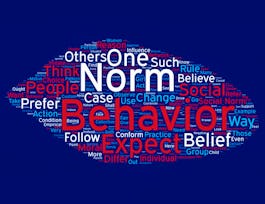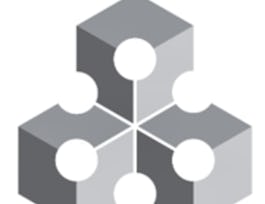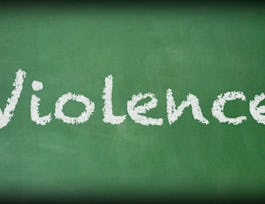This is a course on social norms, the rules that glue societies together. It teaches how to diagnose social norms, and how to distinguish them from other social constructs, like customs or conventions. These distinctions are crucial for effective policy interventions aimed to create new, beneficial norms or eliminate harmful ones. The course teaches how to measure social norms and the expectations that support them, and how to decide whether they cause specific behaviors. The course is a joint Penn-UNICEF project, and it includes many examples of norms that sustain behaviors like child marriage, gender violence and sanitation practices.


Social Norms, Social Change I
Taught in English
Some content may not be translated
111,786 already enrolled
(2,001 reviews)
Skills you'll gain
Details to know

Add to your LinkedIn profile
9 quizzes
See how employees at top companies are mastering in-demand skills


Earn a career certificate
Add this credential to your LinkedIn profile, resume, or CV
Share it on social media and in your performance review

There are 4 modules in this course
Welcome Social Norms, Social Change. This course aims to give you the tools to understand, measure, and change collective practices. This module focuses on two of the basic building blocks the theory of social norms is built on: the distinction between interdependent and independent behavior, and empirical expectations.
What's included
13 videos7 readings2 quizzes2 discussion prompts
This module adds two more of the basic building blocks of the theory: normative expectations and personal normative beliefs. Although both are "normative" — that is, both have a component dealing with a "should" — there are important differences between normative expectations and personal normative beliefs.
What's included
9 videos6 readings2 quizzes2 discussion prompts
In this module we cover two topics: conditional preferences and social norms. Conditional preferences are the final basic building block of the theory of social norms. After studying all these building blocks, we can finally assemble them to understand what it means for a collective practice to be a social norm.
What's included
11 videos4 readings2 quizzes2 discussion prompts
This module covers two important topics: pluralistic ignorance and norm measurement. Sometimes individuals endorse their social norms, but sometimes they do not. Knowing when a norm is endorsed is crucial for intervention. But how do we know we are dealing with a social norm or whether it's endorsed? Measurement answers that question.
What's included
12 videos9 readings3 quizzes2 discussion prompts
Instructor

Recommended if you're interested in Governance and Society

University of Pennsylvania

University of Pennsylvania

University of Michigan

Emory University
Why people choose Coursera for their career




Learner reviews
Showing 3 of 2001
2,001 reviews
- 5 stars
72.89%
- 4 stars
20.21%
- 3 stars
4.94%
- 2 stars
0.99%
- 1 star
0.94%

Open new doors with Coursera Plus
Unlimited access to 7,000+ world-class courses, hands-on projects, and job-ready certificate programs - all included in your subscription
Advance your career with an online degree
Earn a degree from world-class universities - 100% online
Join over 3,400 global companies that choose Coursera for Business
Upskill your employees to excel in the digital economy
Frequently asked questions
Access to lectures and assignments depends on your type of enrollment. If you take a course in audit mode, you will be able to see most course materials for free. To access graded assignments and to earn a Certificate, you will need to purchase the Certificate experience, during or after your audit. If you don't see the audit option:
The course may not offer an audit option. You can try a Free Trial instead, or apply for Financial Aid.
The course may offer 'Full Course, No Certificate' instead. This option lets you see all course materials, submit required assessments, and get a final grade. This also means that you will not be able to purchase a Certificate experience.
When you purchase a Certificate you get access to all course materials, including graded assignments. Upon completing the course, your electronic Certificate will be added to your Accomplishments page - from there, you can print your Certificate or add it to your LinkedIn profile. If you only want to read and view the course content, you can audit the course for free.
You will be eligible for a full refund until two weeks after your payment date, or (for courses that have just launched) until two weeks after the first session of the course begins, whichever is later. You cannot receive a refund once you’ve earned a Course Certificate, even if you complete the course within the two-week refund period. See our full refund policy.




